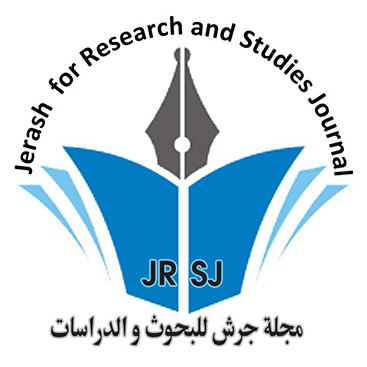Jerash for Research and Studies Journal مجلة جرش للبحوث والدراسات

Abstract
This study aims to clarify the role of financial inclusion in the Islamic economy, that is given its importance in achieving social justice through cooperation, solidarity and charity among society members. The role of financial inclusion has emerged in its ability to treat poverty and achieve adequacy of the poor and marginalized youth and women, that is through providing the necessary financing for them, through two directions, one of which is participation and risk-sharing contracts, and the other is social spending.
In addition, participation and risk-sharing contracts were able to provide microfinance for the poor to set up their own projects, or to provide work for those who are able to do it. So, whoever owns in-kind capital can provide assistance to other members of society and include them financially.
So, the social spending, it has another role in including the poor and financially marginalized people, by providing in-kind / cash assistance to them. Social spending is divided into two parts, some of it is based on a person giving up part of his money in order to achieve prosperity for himself in this world and the hereafter, and to achieve the interests of the needy including poor families and relatives, and meet their needs by spending on them. The other is based on meeting the need of the poor in society from the money of the rich by various means, such as Endowment, Good Loan and Zakat
Recommended Citation
Al Suwais, Najwa and Abu Al-Basal, Abdel Naser
(2022)
"Financial Inclusion in the Light of Islamic Economics,"
Jerash for Research and Studies Journal مجلة جرش للبحوث والدراسات: Vol. 23:
Iss.
2, Article 14.
Available at:
https://digitalcommons.aaru.edu.jo/jpu/vol23/iss2/14

